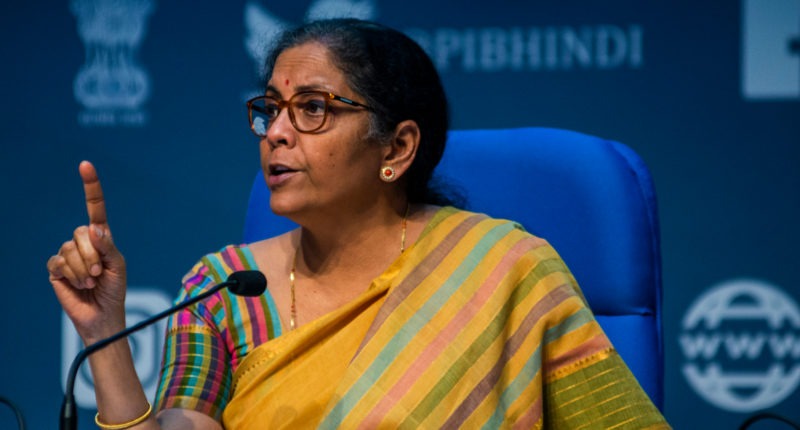The 45th GST Council meeting was held on Friday, 17th September 2021. It was chaired by the Union FM Nirmala Sitharaman and state Finance Ministers at Lucknow, Uttar Pradesh, physically after a long time of two years of virtual meetings.
The Union FM stated that overall decisions taken were people-friendly and long due. The key outcomes included correcting the inverted tax structure of key items and extending compensation cess up to March 2026. Further, the time limit to avail GST concessions on importing COVID-treating medicines was extended from 30th September 2021 to 31st December 2021.
Updates on the various GST compliance matters
- A late fee on GSTR-1 delays will be auto-populated and collected in the next open GSTR-3B return.
- From 1st January 2022 onwards, the CGST Rule 59(6) to block GSTR-1 for not filing previous months’ GSTR-3B shall stand revised and implemented.
- Amendments will be made to the CGST Rule 36(4) once the new provision Section 16(2)(aa) is notified by the CBIC.
- The GST Council has relaxed the frequency to furnish form ITC-04 in case of job work reporting. It is once in six months for those with an annual turnover of the preceding year being more than Rs.5 crore, whereas once in a year for the rest.
- Inter-GSTIN transfers of unutilised cash balance of CGST and IGST without refund procedures have been allowed.
- Interest under Section 50 of the CGST Act on the input tax credit claimed and utilised will be charged at 18% p.a retrospectively from 1st July 2017.
Matter on including petrol under GST deferred
All eyeballs were on the Council to levy GST on petrol. However, FM clarified the GST levy on petroleum products was included in today’s agenda and discussed only due to the Kerala HC’s order. In the court’s direction, this matter came up.
Still, the members felt it not appropriate to elaborately discuss or levy GST on petrol at a time of economic instability. Hence, FM stated that all states together pushed the matter, and the same would be conveyed to the court hearing scheduled in the next two months.
GST to be charged on the food delivery apps from 1st January 2022
GST will be charged and collected from the food delivery apps, e-commerce operators where food is delivered. There will not be any extra tax collected from a customer’s viewpoint.
Aadhaar Authentication to become mandatory
Aadhaar authentication will become mandatory to be eligible for filing refund claims and application for revocation of cancellation of GST registration.
GST rates revised on several items
The following is the list of GST rates on goods that got revised:
- Several expensive life-saving drugs not connected to COVID but have been in demand to treat muscular atrophy or dystrophy, such as Zolgensma and Viltepso, have been exempted from GST.
- Further, drugs recommended by the Ministry of Health and Family Welfare and the Department of Pharmaceuticals for treating the same and imported for personal use are exempted from IGST.
- The list for GST concession of the COVID treating medicines stands expanded. Further, the time limit has been extended from 30th September to 31st December 2021, except for the original list of COVID-treating equipment.
- Many GST rates were on Cancer-related drugs such as Keytruda, and few others were reduced from 12% to 5%.
- Further, the GST on retro fitment kits used in vehicles built for people with disabilities is reduced to 5%.
- The GST rate on fortified rice kernels for ICDS for blending with diesel is reduced from 18% to 5%.
- The biodiesel supplied to oil marketing companies is slashed from 12% to 5%.
The FM also mentioned a few services that faced GST rate revisions.
Firstly, the transportation of export goods via the sea and the air, which was earlier exempted from GST due to technical difficulties on the GST portal, further extended such exemption up to one year.
Secondly, states that charge national permit fees granting permits for goods carriage to operate throughout India and in contiguous states got exempted from GST.
Thirdly, training programmes for skill development which are either wholly or partly (up to 75%) funded by the Central or the state government stands exempt from GST. It means that trainees may be required to pay a small fee with the Centre or states compensating 75% chunk of the fee.
Likewise, there were few more services that saw a GST rate revision.
The decision was made to avoid double taxes on the import of aircraft and other goods on lease by granting an IGST exemption. Suitable changes will be made in the Customs law. Lessors located in SEZ paying GST on a forward charge will also be exempted.
Inverted tax structure corrected for several industries
The GST Council took up the matter on the correction of the inverted tax structure. Several items were on today’s agenda.
- The meeting primarily addressed the footwear and textile sector. All members agreed to implement it from 1st January 2022 with minor tweaking possible in due course.
- Next on the list was ore concentrates and specified metals where the royalty is used as input services is charged at 18% GST. It has now been corrected at this meeting without a date decided on implementation.
- Further, the GST rate on pen parts which is 18% in comparison to pens being charged at 12%, was corrected by increasing the rate of the pens to 18%.
- On the other hand, certain specified renewable energy devices, presently being taxed at 5% and with 18% GST rate inputs, were corrected for inverted structure. GST at 12% is now prescribed on those energy devices, thus helping the government’s domestic manufacturing and Aatmanirbhar Bharat Mission.
- Further, the GST rate on railway parts, locomotives and parts falling under Chapter 86 were increased from 12% to 18% to correct inversion.
Compensation Cess extended up to March 2026
A detailed presentation on revenue augmentation and neutrality position of GST rates and discussed by the GST Council. The Revenue Neutral Rate (RNR) rate of GST earlier was 15.5%, which has now come down to 11.6% today. The actual compensation given since the beginning of GST was presented in the presence of the Joint Revenue Secretary.
Accordingly, the cess collection will be extended beyond July 2022 to March 2026. It is done to make up for the back-to-back loan servicing, earlier taken for a state compensation arrangement of 2020-21 and 2021-22. FM further stated that the Centre did not clear the last year’s dues to states while Rs.75,000 crores have already been paid to states out of this loan.
New Group of Ministers (GoM) to be formed
Two separate GoMs will be formed in a week to study the rate rationalisation and a bunch of compliance and leakage issues such as the e-way bill, FASTags, etc., with reports expected to be placed before the Council within the next two months.
Miscellaneous announcements
Several other clarifications are given on intermediary services, interpretation of terms used in the GST law, invoices, debit and credit notes, wrong payment of taxes.
The meeting commenced from morning 11 a.m and concluded around 7:45 p.m, after which the Union FM addressed the press until 8:30 p.m. FM began the media briefing by acknowledging that many members were happy to be meeting each other physically after two years.
The Union FM thanked the CM and FM of Uttar Pradesh. They hosted the 45th GST Council meeting and warmly received each one of the members. She expressed that it created an amicable atmosphere among the members. She added that many other states showed interest in hosting the upcoming Council meetings.
Join our Telegram channel to keep getting updates on all things finance.
For any clarifications/feedback on the topic, please contact the writer at annapoorna.m@cleartax.in
Annapoorna, popularly known as Anna, is an aspiring Chartered Accountant with a flair for GST. She spends most of her day Singing hymns to the tune of jee-es-tee! Well, not most of her day, just now and then.





